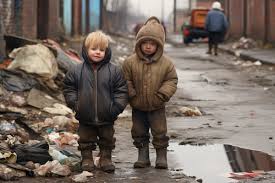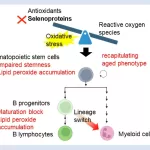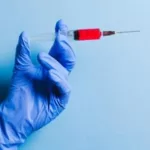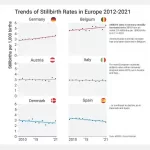A new study led by researchers at University College London (UCL) reveals concerning findings about the long-term impact of early adversity on children’s mental health. The research, published in The Lancet Public Health, indicates that children whose firstborn siblings experienced adverse childhood experiences (ACEs) during their first 1,000 days are at a significantly higher risk of developing mental health issues themselves, even if they are not the firstborn.
The study, which analyzed the health records of over 500,000 children born in England between 2002 and 2018, found that children are 71% more likely to develop mental health problems between the ages of 5 and 18 if their firstborn sibling experienced adversity in their early years. Adversity in this context refers to six types of ACEs: child maltreatment, intimate partner violence, maternal substance misuse, maternal mental health problems, adverse family environments (such as homelessness), and high-risk child maltreatment incidents (e.g., unexplained child injuries).
The findings highlight a disturbing pattern: for every 100 mothers whose firstborn faced adversity, there were an additional 12 children who later developed mental health issues. Even more concerning, the risk for mental health problems extended to all siblings in the family, regardless of their birth order, pointing to the broader effects of family adversity.
Lead author Dr. Shabeer Syed of the UCL Great Ormond Street Institute of Child Health explained, “This study reveals that the impact of ACEs goes beyond the individual child, affecting siblings and extending the risk to multiple children within a family. These risks are likely due to the continuation of adversity within the family environment, where mental health issues, violence, and other forms of distress create a cycle that can affect all children in the household.”
The study also revealed that children from families where the firstborn experienced ACEs had 50% more emergency hospital admissions for various reasons and twice as many mental health-related healthcare visits.
Professor Jessica Deighton from UCL Psychology & Language Sciences, who co-authored the study, emphasized the need for a holistic approach to child mental health. “We must expand our focus to include siblings of children facing challenges such as domestic abuse or poverty,” she said. “This would ensure that all children in such families receive appropriate care at the earliest opportunity.”
The researchers call for increased funding for prevention programs that address family-wide needs, including mental health support for both parents and children. They also urge the development of comprehensive, cross-government strategies that include local community assets like GPs and local organizations in addressing the needs of vulnerable families.
The study’s findings suggest that early interventions, such as support from health visitors and GPs, could have a far-reaching impact on reducing childhood mental health problems, not only for the firstborn but also for younger siblings. However, the researchers point out that further investigation is needed to determine the effectiveness of these interventions.
Study Limitations
It’s important to note that the study did not examine the impact of adverse childhood experiences related to fathers’ mental health or substance use, as health care data from fathers could not be linked to their children. Additionally, the researchers caution that while the study found an association between ACEs in firstborns and mental health outcomes in siblings, it does not establish a direct cause-and-effect relationship. There are also limitations in how ACEs are recorded in healthcare data, particularly in cases of intimate partner violence and child maltreatment, which are often underreported.
Disclaimer: The findings from this study are based on a large dataset of health records. However, while the study suggests a strong association between ACEs in firstborns and mental health outcomes in siblings, more research is needed to establish causal links and to explore potential interventions for supporting affected families.
For further details, see the full study in The Lancet Public Health, titled Adverse childhood experiences in firstborns and mental health risk and healthcare utilisation in siblings: a population-based birth cohort study of half a million children in England (2025).











